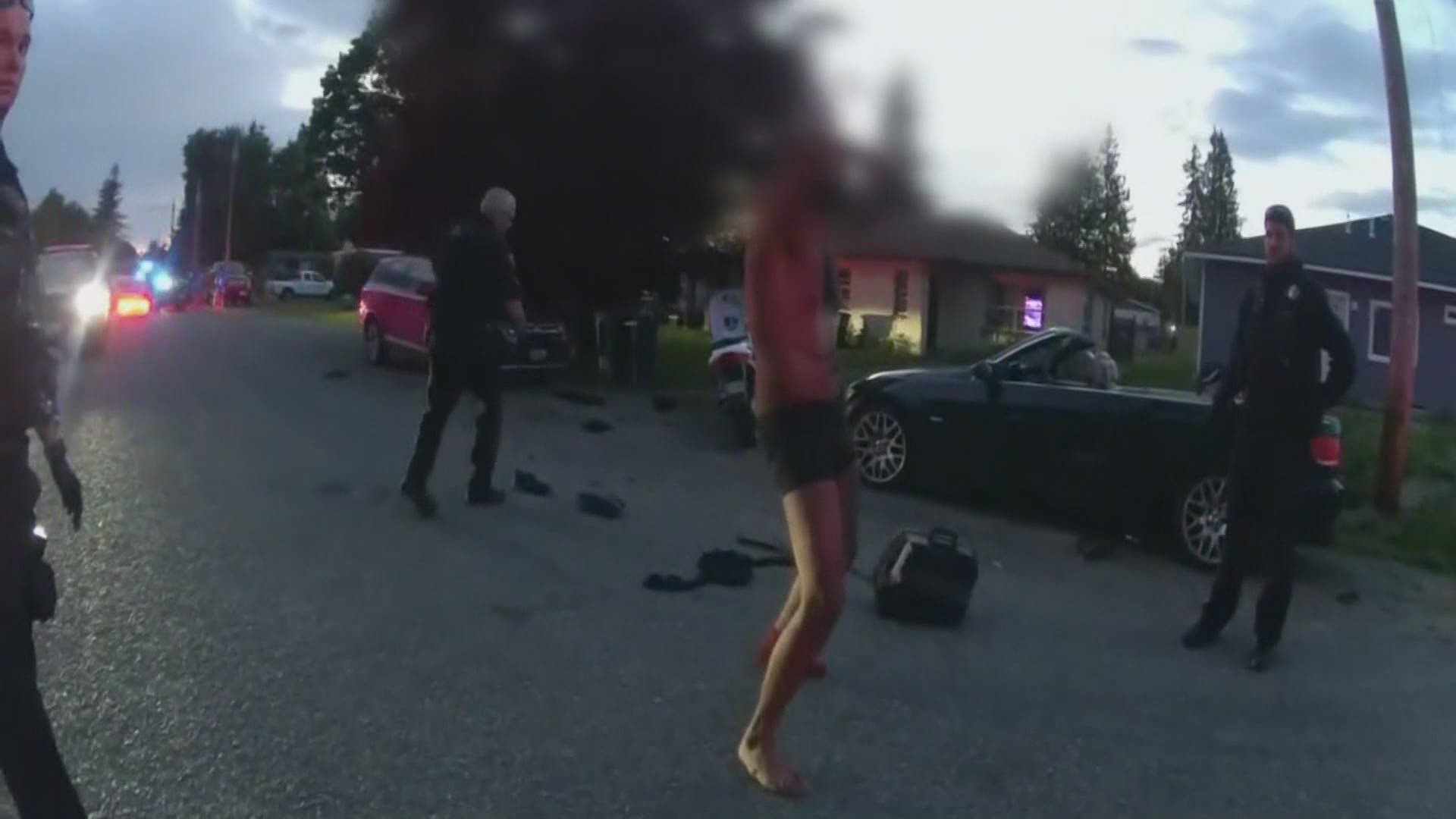SEDRO-WOOLLEY, Wash. — State and local police and firefighters suggest a new Washington state law will prevent them from assisting in mental health or drug-related incidents, an unintended consequence of last summer's social reckoning and changes to use of force.
Sedro-Woolley Police Chief Lin Tucker said he's already instructed his department to abide by House Bill 1310, which does not go into effect until next month. That bill, signed into law, provides strict definition on legal use of force except when necessary to make an arrest, prevent an escape or protect against an imminent threat.
Tucker said that limited his officers earlier this month, when they responded to a domestic call to find a man, partially naked, in a residential area and in the midst of a mental or drug related episode. He said his officers, along with a trained social worker, attempted to talk down the man without any use of force and ultimately walked away. They were called again an hour later, and again, left without taking the man into custody.
He said, that's because the new law prohibits officers from touching the man and taking him to a care provider.
"Our whole system is a systemic flaw that doesn't have the depth that we need. We need some way that we can pick up a person in crisis and get them to a professional help," said Tucker, who also acknowledged that the law "worked exactly the way I believe the legislature, legislature wanted it to work."
Tucker is not alone in expressing his concerns about the potential gray area involving mental and drug counseling.
The Executive Director of the Washington Association of Sheriffs and Police Chiefs Steve Strachan sent a letter to his colleagues this month suggesting they revisit their policy to calls involving behavioral health issues.
He wrote about HB 1310, "To me, that means that the days of always filling every gap in services, always going to every call because that is what we do, and 'I’ll run out there and see what’s going on' need to be reconsidered. We also must begin to communicate that law enforcement cannot continue to be the default response to every problem. That is a big shift, is the transition from 'reimagining policing' to reality, and one that will necessitate strong communication with your local policy makers and communities."
"It will put us at risk, it's going to put the public at risk," said Shoreline Firefighter and Local Fire Union President Emeritus Gabe DeBay, who said his municipality has already changed its approach based on the soon-to-be enacted law. "There's already been situations where normally the police department would come to be our backup, and they have not responded. That's scary."
DeBay gave an example of where he believes there is uncertainty, based on personal experience.
"I have one yesterday wasn't even a call, I just happen to see a girl on a bridge, about to commit suicide about to jump off of a bridge. I was just driving by, by myself and I was able to pull her off. I use physical force. With this new law, a law enforcement officer might not do that, they might hesitate because they're thinking about their career, am I gonna get in trouble for it?"
The bill was part of a package that was approved in the wake of a social reckoning, the murder of George Floyd, and death of Manuel Ellis at the hands of Tacoma police.
One of the bill's prime sponsors, Rep. Jesse Johnson of Federal Way, believes the bill is being misinterpreted in Sedro Woolley.
In a lengthy statement to KING 5, he wrote, "Let’s be very clear: HB 1310 is about requiring police to de-escalate, rather than escalate, and minimize use of force, particularly deadly force. Not only is that what the Legislature is requiring of our police, but it is what the people of Washington state have demanded over and over again. If police feel that force is necessary, that harming someone is necessary, there better be no possible alternative and they should be prepared to defend that force when investigated by an independent commission, if force results in death (under HB 1267).
“It’s time we start valuing life and stop allowing fear guide our actions. If there are some technical, unintended consequences to HB 1310 that require a legislative fix, I will talk to the Attorney General and determine next steps. As the model policy is developed and implemented, questions from police on how to operate under HB 1310 may be answered without further need for legislative action. But I’m not sure the Sedro-Woolley police are interpreting HB 1310 correctly and I would encourage them to speak to the AG’s office to make sure they are following the law correctly to protect everyone involved the best they can.”
Tucker said the "intent of the law worked," but that he believes a tweak should be in order.
"You can be well rounded, but have a couple of flat spots. I think this law is fairly well rounded. It's got a lot of good things in it. But it's got a couple of flat spots, too," said Tucker.

